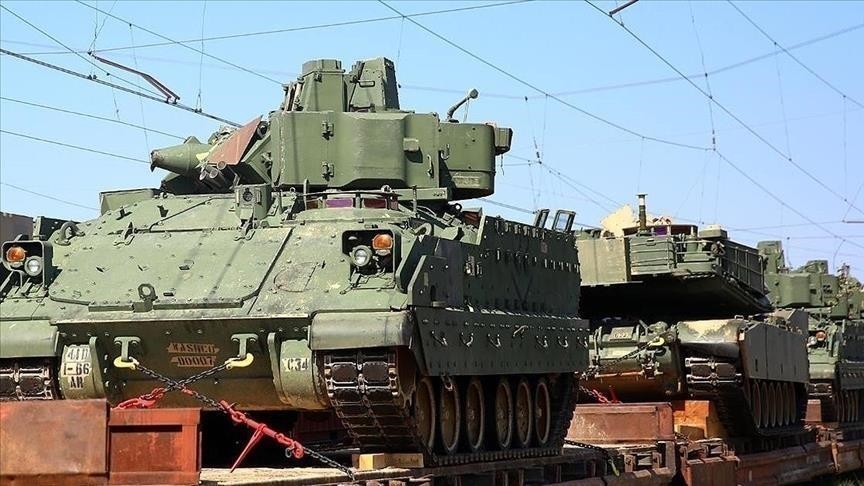
- Berlin would “no longer authorise any exports of military equipment that could be used in the Gaza Strip until further notice,” following the green light from Israel’s Security Cabinet for a military plan to take control over Gaza City.
- Germany has been Israel’s second-largest arms supplier after the United States, contributing approximately 30% of Israel’s arms imports between 2019 and 2023.
- A recent poll found nearly 75% of Germans support increasing pressure on Israel over its response to the Gaza crisis.
Germany’s decision to halt military exports to Israel that were used in the Gaza Strip represents a turning point in its longstanding defence relationship with Israel. Chancellor Friedrich Merz spoke on August 8, 2025, stating that Berlin would “no longer authorise any exports of military equipment that could be used in the Gaza Strip until further notice,” following the green light from Israel’s Security Cabinet for a military plan to take control over Gaza City. He expressed serious concerns over both the clarity of Israel’s objectives and the humanitarian loss involved in Israel’s mission to conquer Gaza.
Germany has been Israel’s second-largest arms supplier after the United States, contributing approximately 30% of Israel’s arms imports between 2019 and 2023. German exports have included naval frigates, tank engines, air-defence systems, ammunition and other defence technologies.
After the Hamas attacks in October 2023, Germany significantly accelerated arms exports to Israel, approving weapons worth €326 million in 2023, a tenfold increase compared to 2022. However, amounts sharply declined in 2024, with only €14.5 million granted between January and August 21, and just €32,449 of that termed as “war weapons.” This slowdown in trade was due to legal challenges and political pressure from around the world, although government officials maintained that exports continued under international humanitarian law.
Also, the UN Chief called Israel’s plan to occupy Gaza City a “dangerous escalation,” potentially displacing close to a million people. Meanwhile, UN Human Rights chief Volker Türk urged an immediate stop to “atrocity crimes” and destruction. A large shift in public opinion could also be seen. A recent poll found nearly 75% of Germans now support increasing pressure on Israel over the Gaza crisis. A complete change in public sentiment could also be one of the reasons for this course of action.
Implications and Repercussions
This policy shift signals a deliberate stress in Germany’s Israel policy, trying to balance historical responsibility with modern humanitarian considerations and pressure from around the world. Germany’s exports had previously included critical war machinery, like engines for Merkava tanks and naval ships used in Gaza combat operations. Although officials suggest this suspension might be temporary and subject to change with the geopolitical upheavals, Germany’s Vice Chancellor Lars Klingbeil remarked, “This is the right decision. The humanitarian suffering in Gaza is unbearable.”
References:
- https://www.theguardian.com/world/2025/aug/08/germany-halts-military-exports-to-israel-over-gaza-invasion-plan
- https://en.wikipedia.org/wiki/Germany%E2%80%93Israel_relations
- https://theprint.in/world/germany-freezes-arms-sales-to-israel-amid-gaza-crisis/2479923/
- https://economictimes.indiatimes.com/news/defence/germany-halts-arms-exports-to-israel-amid-gaza-crisis-may-push-for-eu-action/articleshow/113523117.cms
- https://www.washingtonpost.com/world/2025/08/08/germany-pauses-military-sales-israel-gaza/
Samarth Tripathi holds a B.Sc. in Mathematics from Saint Gahira Guru University, Ambikapur, and a B.Ed. He has a strong interest in defence journalism, national security, and geopolitics.
